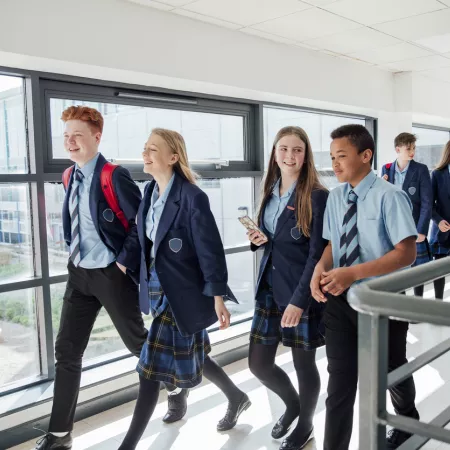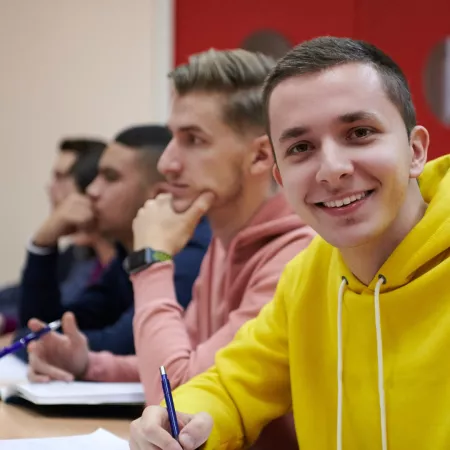
Charlotte's reality of Results Day
My seizures were starting when I was sitting my exams. A level results day came & I felt so disheartened opening up the letter.

Young people with epilepsy may be entitled to extra support for exams. This might be due to the seizures themselves or the impact that epilepsy has on how you learn (e.g. you might struggle with memory issues or getting through tasks quickly).
Schools, colleges, univeristies and awarding bodies for qualifications are required to make reasonable adjustments to make sure young people with epilepsy are not put at a disadvantage in comparison to their peers.

Watch Zunera's story, where she speaks about her experience with epilepsy in education.
You may be able to get additional support for your exams. These are known as access arrangements. Access arrangements can include:
Any support you receive should reflect your normal way of working. For example, if you are given extra time to do assessments in class, you are likely to be allowed extra time in exams.
For public exams such as GCSEs or A-levels, schools decide whether support is needed by looking at rules provided by the Joint Council for Qualifications (JCQ). In Scotland, the SQA have more information on assessment arrangements.
For other tests and exams, your parents or carers should check with your school. You should speak to your school as early as possible. There may be deadlines the school needs to meet. However, a late application can be made if your epilepsy gets worse after these.
Special consideration means your exam mark is adjusted after the exam by the exam board. This could apply if:
If you think you are eligible for special consideration, you or your parents or carers should speak to your school as soon as possible. They will need to tell the exam board. The exam board will explain what support they can offer and how to apply for it.
Special consideration can also apply to coursework. You or your parents or carers should speak to your school for more information.

My seizures were starting when I was sitting my exams. A level results day came & I felt so disheartened opening up the letter.

Annie is a key member of our Youth Voice Network. In her blog, she discusses her experience with education and her exam top tips.

Meet Bea, one of the heroes of our #UnderstandMyEpilepsy Campaign. Bea is 15 and experiences focal seizures. For Bea this has meant that her teachers and students at school don't understand her epilepsy and the challenges that she faces.

Get prepared for the new school year with this checklist designed to help students with epilepsy manage their condition and thrive in school

Learn how epilepsy can impact learning and discover strategies, tools, and support which can help.

As a young person with epilepsy, you have certain rights at school including: An Individual Healthcare Plan, reasonable adjustments and support with exams.

Explore guidance and resources for students with epilepsy transitioning to further education, from managing health to academic success.
A space for young people, aged 13+, who are living with epilepsy, for them to share, learn and find support.